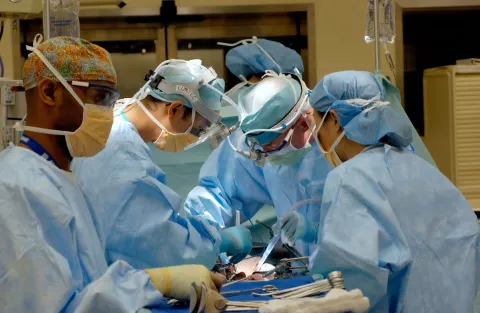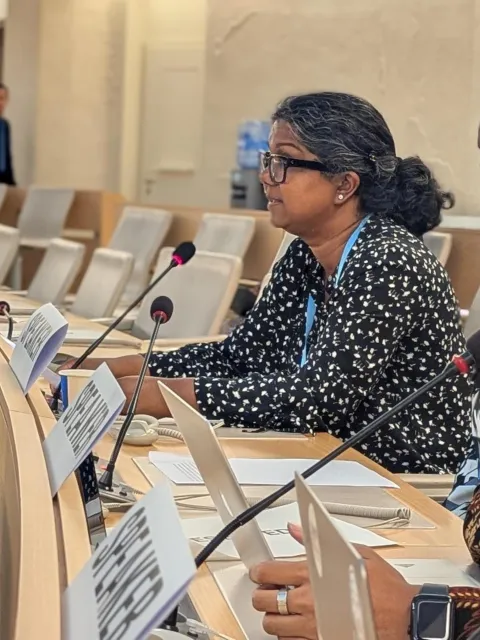WHO report highlights severe disruptions to cancer services due to COVID-19
It is encouraging to see WHO pay attention to cancer and other non-communicable diseases (NCDs) during the COVID-19 pandemic with the publication of a preliminary assessment on service delivery for NCDs.

The response to the coronavirus continues to mobilise resources worldwide and it has become apparent that this has adversely affected the delivery of care services for other public health emergencies of Non-Communicable Diseases (NCDs), including cancer.
The numbers are alarming. According to the study by the World Health Organization, 41% of countries reported disrupted services to treat cancer in sporadic cases of COVID-19, 54% in the more severe transmission phase of community outbreak.
The top 5 most common disruptions to services across the non-communicable diseases noted by WHO were: the cancellation of elective care (63%), the closure of population-level screening programmes (45%), transport lockdown that hinders access to health facilities, closure of disease-specific consultation clinics, insufficient protective equipment (43%), NCD related clinical staff deployed to provide COVID-19 relief (38%) and closure of outpatient disease specific consultation clinics (31%).
“We have heard from many UICC member organisations and partners in the past weeks and the snapshot of the situation provided by the WHO report is only the tip of the iceberg. We are seeing a direct impact of the pandemic and lockdown measures on cancer services and a downturn in funding support for civil society organisations. We fear that staff and financial resources reallocated to the COVID-19 response will not return to rebuild cancer services.”
– Dr Cary Adams, CEO of UICC
Disruptions in HPV vaccination and screening programmes for breast, cervical and colorectal cancers are particularly concerning, as these can create missed opportunities for prevention. Clinical trials and implementation research as well as palliative care services are all experiencing interruptions, with uncertainty on their ability to resume. These disruptions are causing distress and suffering.
They also risk resulting in poorer outcomes, more late-stage diagnoses and cancer-related deaths in the months and years to come. A recent study by the British Medical Journal says cancer mortality could rise 20% due to the pandemic.
As countries move through the pandemic and look to recovery, the anticipated global economic downturn will also take its toll. Countries will be lucky to stablise economies at best and we have seen in the past that a significant drop in GDP leads to a cut in health spend, particularly for perceived high-budget items such as cancer services. These cuts will likely cause a shift from public to private sector providers and increase out-of-pocket expenses. Furthermore, an anticipated depreciation of the US dollar would mean that the cost of many cancer medicines and even basic equipment could increase.
WHO reports that 66% of countries have included the continuity of NCD services in national COVID-19 plans (from 42% in low and middle-income countries to 78% in upper middle-income countries), which is encouraging.
To provide policy makers and the cancer community with high quality data on the direct risk of COVID-19 to cancer patients and oncology health workers as well as recommendations for mitigation and recovery planning in the longer term, UICC has joined a COVID-19 and Cancer Task Force.
“In high income countries alone, leaders of cancer centres are anticipating a five-year period of economic impact, but a whole decade to recover fully from the disruption of cancer services and the impact on outcomes. For example, a soon to be published UK analysis in The Lancet Oncology projects tens of thousands of years of life lost to delays in care of just four major cancers – breast, lung, oesophageal and colorectal cancers If you consider countries like India with high incidence of cancers that require complex surgery such as head and neck cancers, the implications of large backlogs are horrifying.”
– Julie Torode, Director of Special Projects at UICC and member of the task force
The Task Force will therefore also be looking at cross-cutting issues with a focus on economic impact assessment and a big concern that existing inequities in access to prevention, treatment and palliative cancer care will only widen. Importantly, the Taskforce will also identify areas where the continuity of cancer services has been positive, identifying new practices that can lay the groundwork for positive change.
Last update
Friday 28 May 2021
